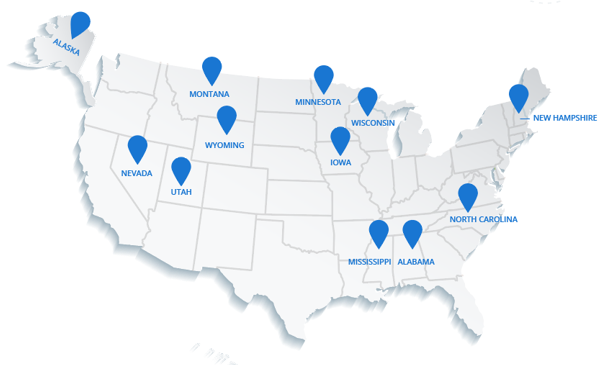Neonates, by definition, encompass infants aged from birth to 2 months. In hospital settings, they are primarily the occupants of neonatal intensive care units (NICUs). This is a critical measure to provide the utmost care to this fragile, high-risk population. A substantial number of NICUs throughout the nation heavily rely on the expertise of Neonatal Nurse Practitioners (NNPs) as essential members of their comprehensive healthcare teams.
Diverse Roles of NNPs
NNPs are integral to many complex patient care tasks performed across diverse environments. These include academic settings, NNP program faculty positions, community-based hospitals, transport services, and many other facets of patient care. Over the course of several decades, the roles and scope of NNPs have evolved, driven by the dynamic nature of the healthcare system.
NNP Qualifications and Responsibilities
NNPs hold the title of a master's-prepared Advanced Practice Registered Nurse (APRN), having undergone formal education within a duly accredited graduate neonatal program. Attaining board certification from the National Certification Corporation (NCC) is a pivotal accomplishment, complemented by the necessity of upholding competency through continuous clinical experience, ongoing education, and periodic recertification.
Emphasis on Education
NNP education is designed to equip individuals with theoretical and scientific knowledge, coupled with a comprehensive collection of advanced clinical skills. The acquisition of advanced health assessment skills, critical decision-making capabilities, diagnostic reasoning, and advanced clinical competencies are all fundamental to the NNP's skill set.
Multifaceted NNP Practice
The practice of an NNP is inherently multifaceted, weaving together research, education, practice, and management. A high degree of professional autonomy is central to their role, allowing them to function independently and collaboratively with neonatologists when appropriate. NNP practice is fundamentally oriented towards health promotion, disease prevention, and the application of a holistic approach to patient care, making NNPs a highly esteemed element of clinical teams.
The Breadth of NNP Practice
NNPs' scope of practice encompasses a range of privileges granted by their certifications and licensure. These privileges are further shaped by the specific policies of the employing facility. Decisions regarding responsibilities and duties may be made in conjunction with neonatologists, and the scope may also be influenced by patient needs. This can include billing for specialized procedures such as central line insertion, circumcisions, and attendance during high-risk deliveries. Nurse Practice Acts at the state level define the scope of practice, including considerations such as the prescription of controlled substances, which can vary between states.
Defining Standards of Practice
While the scope of practice delineates what NNPs are authorized to perform, standards of practice govern how these activities are executed. Adherence to the standards established by their employing organizations is vital for NNPs. These standards encompass routine components of patient care, including patient assessment, diagnosis, plan of care development, intervention, and evaluation. Proficiency in these routine competencies is coupled with adeptness at holistic care delivery.
Balancing Autonomy and Collaboration
Although NNPs often operate under the guidance of neonatologists, they assume full responsibility for their patients. This entails making medical decisions for diagnoses, treatment, and procedures. Experienced NNPs are occasionally the sole healthcare providers on duty in various healthcare facilities across the nation. This underscores the importance of their competence in handling medical emergencies. New graduate NNPs are encouraged to ask targeted questions during interviews to assess the level of support provided. Additionally, the level and setting of the NICU play a crucial role in determining whether an NNP can be the sole provider.
NICU Levels and NNP Roles
The diverse levels of NICUs determine the extent of the NNP's role. In Level I NICUs, which typically admit healthy, full-term newborns, the NNP's role may be more autonomous, though the scope of practice is more limited. Level II NICUs cater to sick and premature infants requiring advanced care, and they do not mandate a neonatologist's constant presence. Level III NICUs manage critically ill neonates and necessitate an expanded level of care, often requiring neonatologists to be present around the clock. Level IV NICUs, which handle the most severe cases, similarly demand a constant neonatologist presence.
Invaluable NNP Contribution
NNPs are highly specialized advanced practice professionals who play a central role in healthcare delivery. They autonomously care for sick and premature infants in NICUs, respond to high-risk deliveries, and offer education and support to staff, parents, and families concerning neonatal care. Their capabilities encompass the diagnosis and treatment of diverse disease processes, facilitating comprehensive ongoing disease management. Engaged in both direct and indirect patient care, NNPs operate in acute settings, academic roles, research, health policy, population health, and quality improvement initiatives. This extensive engagement ensures that clinical practice is firmly evidence-based.
Addressing Demand-Supply Disparity
Throughout history, the demand for Neonatal Nurse Practitioners has consistently surpassed the supply. NNP programs nationwide grapple with limited student capacity, while a shortage of NNP faculty within academic institutions compounds the issue. The multifaceted and collaborative nature of the NNP role magnifies the impact of this shortage on patient care delivery. As NICU capacities expand, so does the gap in providing adequate NNP coverage. The NNP role boasts an impressive legacy of pioneers who have significantly influenced healthcare. Addressing the demand-supply mismatch requires concerted efforts to recruit potential NNP candidates into programs, offering them mentorship and guidance to shape successful careers.
Mentorship and Evidence-Based Care
Amid this challenge, the collective responsibility includes nurturing potential candidates, guiding them through NNP programs, and fostering their development into esteemed healthcare team members. NNPs practicing in clinical settings bear the responsibility of serving as preceptors, supporting NNP students in realizing their potential as valued members of the healthcare team. The evolving landscape of evidence-based care for critically ill neonates necessitates continual competence documentation by NNPs, ensuring that they consistently deliver safe, high-quality care. This commitment reinforces the NNP's role as an influential and indispensable component of the healthcare delivery team.
References:
- National Association of Neonatal Nurses. (2013). Advanced Practice Registered Nurse: Role, Preparation, and Scope of Practice [position statement]. Austin, TX: Author. Retrieved from: Link
- National Association of Neonatal Nurses. (2015). Standard of Maintaining the Competence of Neonatal Nurse Practitioners [position statement]. Austin, TX: Author. Retrieved from: Link
August 9, 2023




Comments